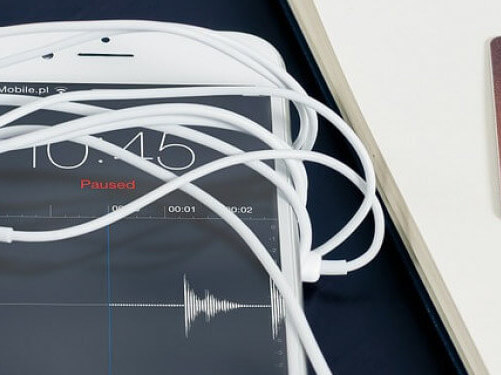Table of Contents
Is a building society savings contract worthwhile for my child? The 3 most important points at a glance:
- Building society savings contracts explained: A building society savings contract for children offers a secure way to build up capital over the long term. Although interest rates are low, the contract gives you the opportunity to take out a low-interest loan to buy a property at a later date.
- Tax benefits and subsidies: Under certain conditions, building society savings contracts can be tax-deductible. There are also tax-free allowances that make taking out a contract more attractive.
- Long-term perspective: Home loan and savings contracts are more suitable as long-term provision and less as a short-term savings solution. However, in view of low interest rates and more flexible alternatives, such as junior deposits, you should carefully consider whether a building society savings contract is really the best choice.
Why a building society savings contract may not be a good idea for your child after all!
Are you considering taking out a building society savings contract for your child?
The idea of securing capital early on for later property financing makes sense. But is a building society savings contract for children really worthwhile in times of low interest rates and more flexible savings options?
The answer is complex and there are some important considerations you should make before you decide.
In this short article, we want to introduce you to building society savings contracts and the alternatives.
Building society savings contract for children explained simply
A home loan and savings contract for children is a special savings contract that aims to build up long-term capital for the future purchase of a property. When a home loan and savings contract is concluded, a certain amount is agreed. This sum is saved through regular payments.
As soon as a certain proportion of the building society sum has been reached, the contract becomes ‘ready for allocation’. This means that a low-interest loan can be taken out in addition to the saved balance, for example to finance the purchase of a home.
For children in particular, a home loan and savings contract can be an early opportunity to realise the dream of owning a home later on. However, this form of savings is less flexible and often only offers low returns in view of the current low-interest phase.
Do the contracts offer security or are they outdated?
A building society savings contract for children is a touted as a secure and predictable form of saving. It combines a savings component with the option of obtaining a favourable loan at a later date. This seems to make sense, especially for families who know for sure that they want to finance a property in the future.
But is this form of investment really still in keeping with the times?
Compared to other forms of savings, such as junior deposits, building society savings contracts offer hardly any returns. In addition, flexibility is limited: If the money is needed before the contract reaches allocation maturity, it can be expensive to cancel the building society savings contract for children.
Another disadvantage of building society contracts is the generally high costs. Many home loan and savings contracts include closing fees, annual account management fees and, in some cases, loan fees that are incurred over the term of the contract. These costs can further reduce the already low returns.
For example, a home loan and savings contract with a closing fee of 1.5 % on the home loan and savings amount can cost as little as 300 euros for a sum of 20,000 euros. In addition, there are annual account management fees of often 12 to 30 euros, which add up over the years.
Tax advantages
A frequently asked question is whether a building society savings contract for children is tax-deductible in germany. In principle, the interest on the building society savings balance must be taxed as soon as it exceeds the saver's allowance. Incidentally, this is €1000 in 2024.
This allowance can be utilised for children if the building society savings balance is in their name.
However, the return often remains below this amount anyway due to the low interest rates.
Taking out a building society savings contract for children - at what age should they start?
Many parents ask themselves when the right time is to take out a home loan and savings contract for children. Theoretically, a home loan and savings contract can be taken out at birth.
A long savings period ensures that sufficient funds are saved until the loan is allocated. However, you must bear in mind the low interest rates and the long commitment period. You should therefore consider whether alternative forms of saving are more suitable.
Home loan and savings contracts vs. junior deposits - where saving is more worthwhile
It is worth comparing a home loan and savings contract with a junior deposit.
While building society savings contracts offer security, junior custody accounts score points with flexibility and higher potential returns.
Compared to building society savings contracts, junior custody accounts are also considerably cheaper. Many providers do not charge any custody account fees and offer free savings plans that invest in high-yield ETFs or funds.
The money saved can be channelled directly into investments, allowing you to build up significantly higher assets in the long term. Investing small or large one-off amounts on the capital market on a regular basis, which can even be done automatically with so-called robo-advisors, makes junior custody accounts an uncomplicated method of investing money for children and grandchildren.
This allows you to benefit from the opportunities of the capital market in the long term without being tied to rigid contractual conditions.
Here are some examples of german junior custody accounts that we have already tested:
| 1 | 2 | 3 |
|---|---|---|
| Deutsche Bank Maxblue | 1822direkt | Scaleable Capital |
| No custody account fees: The Maxblue Junior Depot from Deutsche Bank is free of charge. High security: As part of Deutsche Bank, Maxblue offers many years of experience and high security standards in the banking sector. Free settlement account: The clearing account is free of charge and provides an easy overview of all transactions. |
Free custody account management: There are no custody account fees for the first three years, and the custody account remains permanently free of charge if it is actively used. Free settlement account: Interest of 2.00% p.a. on amounts up to €100,000 for six months. Attractive savings plans: Over 100 ETF savings plans with no execution fee and discounted fund savings plans. Bonuses for new customers: Call deposit account with 3.30% p.a. on amounts up to € 250,000 for six months. |
No custody account fees: The junior custody account at Scaleable Capital is also permanently free of charge. Wide range of investments: Over 1,900 ETFs without order fees for prime customers and a wide selection of other products. Savings plans from 1 euro per month: Regular investments can be made with small amounts to build up long-term assets. Digital approach: Scaleable Capital offers a fully digital platform with fully automatic reinvestment of profits. (Robo-Advisor). |
| → Suitable for: Parents and grandparents who value security and a broad product range. |
→ Suitable for: Parents and grandparents who want to trade regularly and benefit from rewards. |
→ Suitable for: Parents and grandparents who want to invest their money even without prior knowledge and little work. |
Conclusion: Is a building society savings contract for children the best choice?
To summarise, a building society savings contract for children can be worthwhile in some cases, especially if you want to finance a property in the long term.
However, for most families, more flexible alternatives, such as Junior Deposits, offer better returns and more freedom. So before you take out a building society savings contract, you should carefully consider whether this traditional form of saving is really the best option for your financial goals.
If you are interested in building up a sustainable and high-yield investment for your child, then discover the in the test now.
Start now with the best junior custody account and make provisions for your children's future!
Sources:










